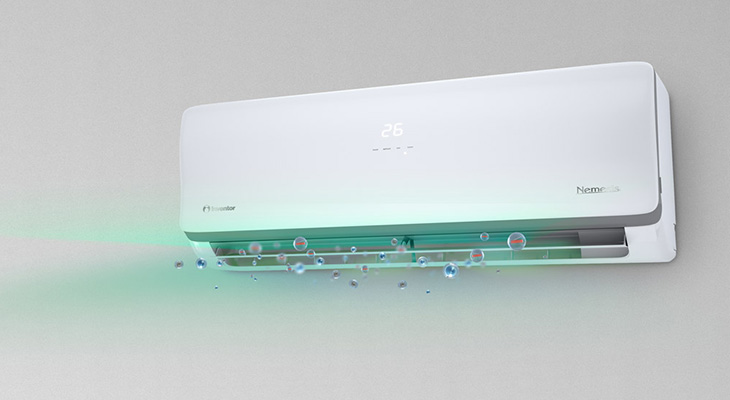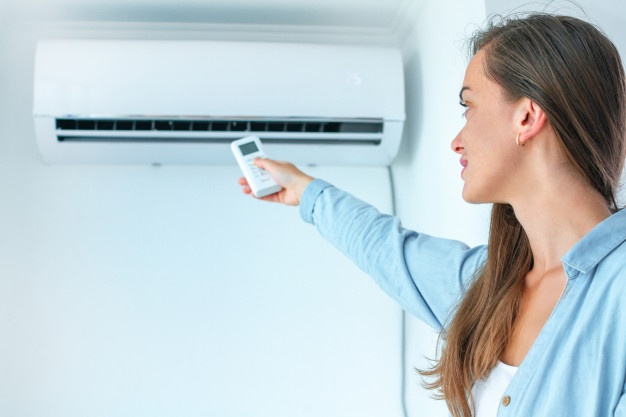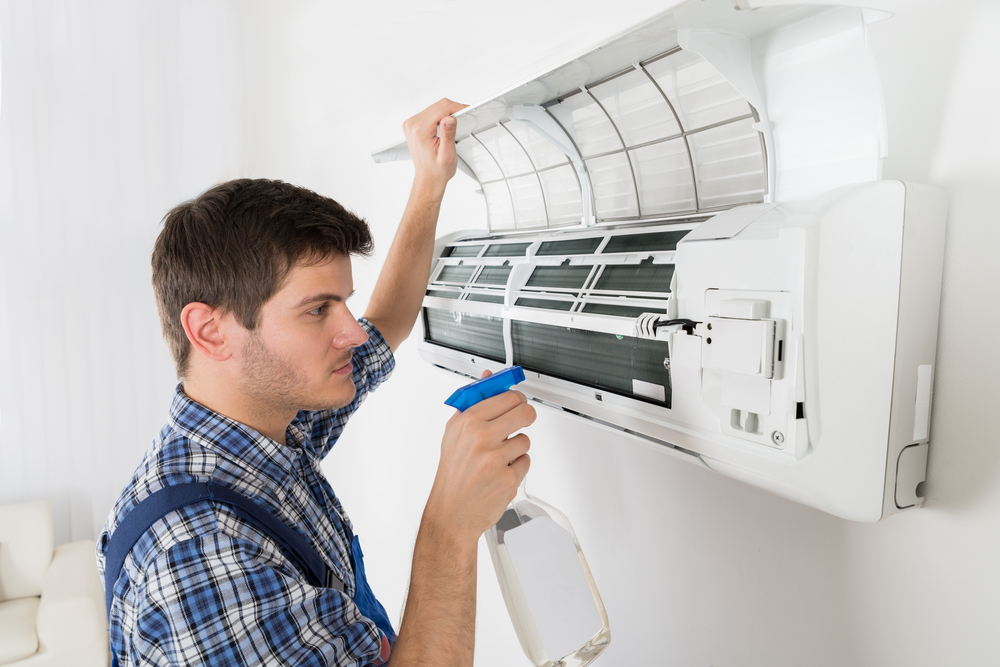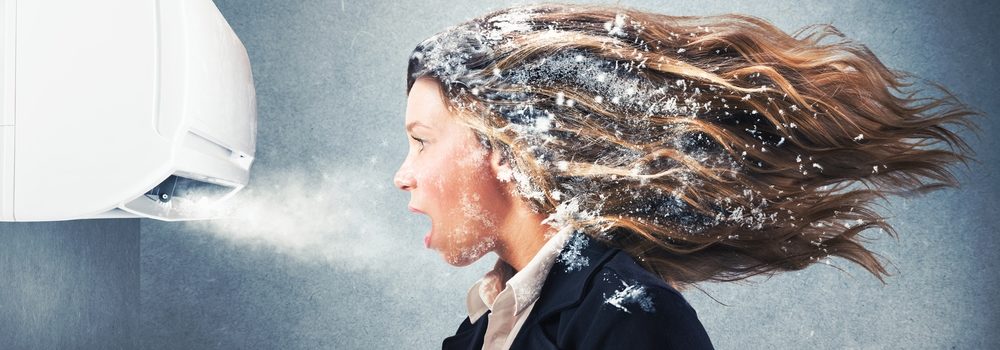The number of air-conditioners worldwide is predicted to soar from 1.6 billion units today to 5.6 billion units by midcentury, according to a report issued Tuesday by the International Energy Agency. In countries such as the United States and Japan, more than 90% of households have air conditioning, 4.6 million Australians use at least one air conditioning unit. Nearly one half of households in Australia (49%) used reverse cycle air conditioning as their main system of cooling.
Air conditioning has become a normal part of our lives. It is available in almost every activity that we undertake in an enclosed space. During the warmer summer months, we may spend most of our time in artificially controlled environments.
However, with the cool air in many homes and offices also come some unpleasant issues making many people view the air conditioner as a problem rather than a solution. Air conditioner headaches affect many homeowners. If you find you suffer from headaches when the AC is on, here is what causes it and how to prevent them:
Dirty Air Filters
AC filters have to be examined and replaced regularly. They should be inspected monthly and replaced as needed—usually every 30 to 60 days. When air filters are neglected, there’s often a buildup of debris, pollutants and allergens that could be dispersed throughout the home. A few small studies have suggested that various forms of air pollution may be linked to headache, as have two Canadian studies that compared trends. Once these contaminants are circulated, they could cause severe headaches in allergen-sensitive individuals.
Excessive Noise
Although you might not think your AC is loud, it could actually be the cause of your painful headaches. Migraines are sometimes triggered by sounds, and an old, loud and inefficient air conditioner could be the culprit. Modern and new units are extremely quiet and could provide the relief you need from constant headaches. In one small study in Headache, 79 percent of people exposed to 50 dB of white noise developed a headache, and 82 percent reported that a headache was the same or similar to their usual headaches, which were either migraines or tension-type headaches.
Low Temperatures
According to one expert, cold temperature stimulates the trigeminal nerve, causing your brain’s blood vessels to constrict and thus create a headache. If you are the type of person who likes to keep the indoor temperature chilly enough for penguins and polar bears, it may be causing your headaches. When you get cold, the blood vessels in your body contract to help preserve body heat. As the blood vessels in your brain contract, it can cause you to develop an uncomfortable headache according to this study. To prevent this, simply turn up the temperature on your thermostat a few degrees.
Dehydration
In some instances, headaches appear because of dehydration. Some people are extremely sensitive to a drop in the indoor humidity and can experience severe headaches from the lack of moisture in the air—especially when sleeping at night. A small survey published in the medical journal Headache found that among the people interviewed, 1 in 10 had experienced a dehydration headache. These respondents described the headache as an aching that got worse when they moved their heads, bent down, or walked around. Most of these survey respondents felt complete relief 30 minutes to 3 hours after drinking water. Another small study of people with chronic migraines, also published in Headache, found that 34 out of 95 people considered dehydration a migraine trigger.
Mold
Your air conditioner’s indoor unit is dusty, dark, wet and hot. These are the perfect conditions for mold spores to thrive and grow on the indoor unit’s evaporator coil. Mold, which can cause headaches, may be living on your AC and get distributed around your home whenever the AC runs. According to the CDC, “molds can cause nasal stuffiness, throat irritation, coughing or wheezing, eye irritation, or, in some cases, skin irritation. Mold growing in an AC unit is not necessarily more dangerous than mold growing elsewhere in your house.
How to Prevent Headaches Caused by Air Conditioning
There are several ways you can prevent headaches caused by air conditioning, which may allow you to enjoy refreshing, cool air without the throbbing associated with a painful headache.
Address Sinus Issues
Inflammation in your sinus passages may bring on a painful sinus headache when you spend time in air conditioning. To prevent sinus problems related to the use of central air conditioning, hydrate your body by drinking increased quantities of water. Also, alter your diet in months when the use of central air conditioning is prevalent in many cities. Reduce your consumption of caffeine and dairy products, which can aggravate your sinuses, and use a humidifier to add moisture to the dry air in your residence.
Avoid Overly-Cold Temperatures
Headaches can result from the constriction of blood vessels in your brain, which may occur when you feel too cold. Set your thermostat at a warmer temperature when using central air conditioning if you are prone to getting headaches. You can also shut off your air conditioning several minutes before you plan to go outside into hot and humid air, helping your body to acclimate to the warmer temperature outdoors.
Clean Your Air Conditioning Unit
The presence of mold spores and seasonal allergens in your home can greatly increase your likelihood of developing headaches. When you use your central air conditioning, mold and airborne allergens can disperse throughout your residence as the cool air from your air vents circulates. Contact an HVAC technician to clean the ductwork in your home, and remember to clean or replace the filters in your central air conditioning system every three months.
Move Away From Air Vents
Some individuals notice that they only develop headaches when using central air conditioning if they sit or stand in a spot that receives direct airflow from their HVAC air vents. Try finding another spot in the room to position yourself to avoid the direct airflow.
The cool air generated by central air conditioning is considered by many to be crucial to their comfort during warmer months. If you experience headaches caused by air conditioning, you can alleviate or eliminate the pain by setting your thermostat to a lower temperature and staying away from direct air from your air vents. Pamper your sinuses to keep annoying headaches from diminishing your enjoyment of central air conditioning. SEE: Environmental Factors Affecting Health









